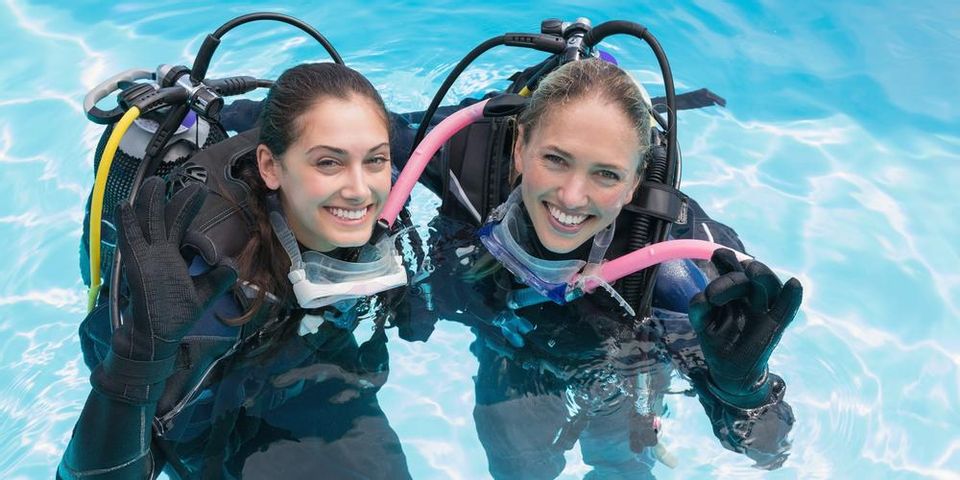Scuba Instruction Pros Share 5 Scuba Safety Tips

If you’re thinking about scuba diving for the first time, you may be excited—and a little apprehensive, too. That’s understandable; it’s not every day you go deep sea diving with pounds of equipment strapped to your body. At the Aquatic Center of Rochester, the top scuba instruction center in Henrietta, NY, they believe nothing matters more than your safety, so they’re here to share their top five tips for safe scuba diving.
5 Key Safety Tips for Scuba Instruction Beginners & Experts
1. Do Not Hold Your Breath
Holding your breath while underwater is probably one of the scuba world’s biggest no-nos. It creates an excess of internal air and can cause severe internal damage, as well as lead to traumatic health issues. In very severe cases, it may be fatal. The air in your lungs expands as you delve into the water and contracts when you rise back up. Regular breathing helps this process and allows air to escape properly.
2. Inspect Your Gear
Make sure your scuba equipment is in top-notch condition. Everything should function properly, and you should know how to use each piece before you first descend into the water. Have a scuba instruction professional inspect it for a second opinion; this is a great way to ensure that you’ll be safe and it’ll provide you with the peace of mind you need while underwater.
 3. Practice Safe Diving
3. Practice Safe Diving
Don’t feel pressured to do something you physically cannot accomplish. Scuba instruction is all about safely learning the sport—and going outside of your comfort zone is certainly not safe. If you’re interested in trying something new, it’s always best to discuss it with a professional beforehand.
4. Make a Plan
What if there’s an emergency during your experience under the sea? Make a contingency plan beforehand so you’ll know how to handle it. This includes everything from establishing a point of contact with a buddy to learning how to return to the right spot when you’re done. Develop a series of hand signals that you and your friend can use to communicate—it can make all the difference to have someone who has your back when you’re in a new environment.
5. Manage Air Supply
Scuba instruction focuses on breaking your air supply into three separate engagements: a third for descending, a third for ascending, and a third as a backup supply. Keep track of your air supply while underwater so you have enough to return safely back to the surface.
By adhering to these rules and taking your cue from experienced divers, you’ll feel a lot more comfortable in the water. If you’re ready to embark on a new adventure, visit the website for the Aquatic Center of Rochester in Henrietta, NY, to learn more about their five-star scuba instructor development training facility and the instruction services they offer. You can also call (585) 334-1670 to speak with a friendly representative.
About the Business
Have a question? Ask the experts!
Send your question

